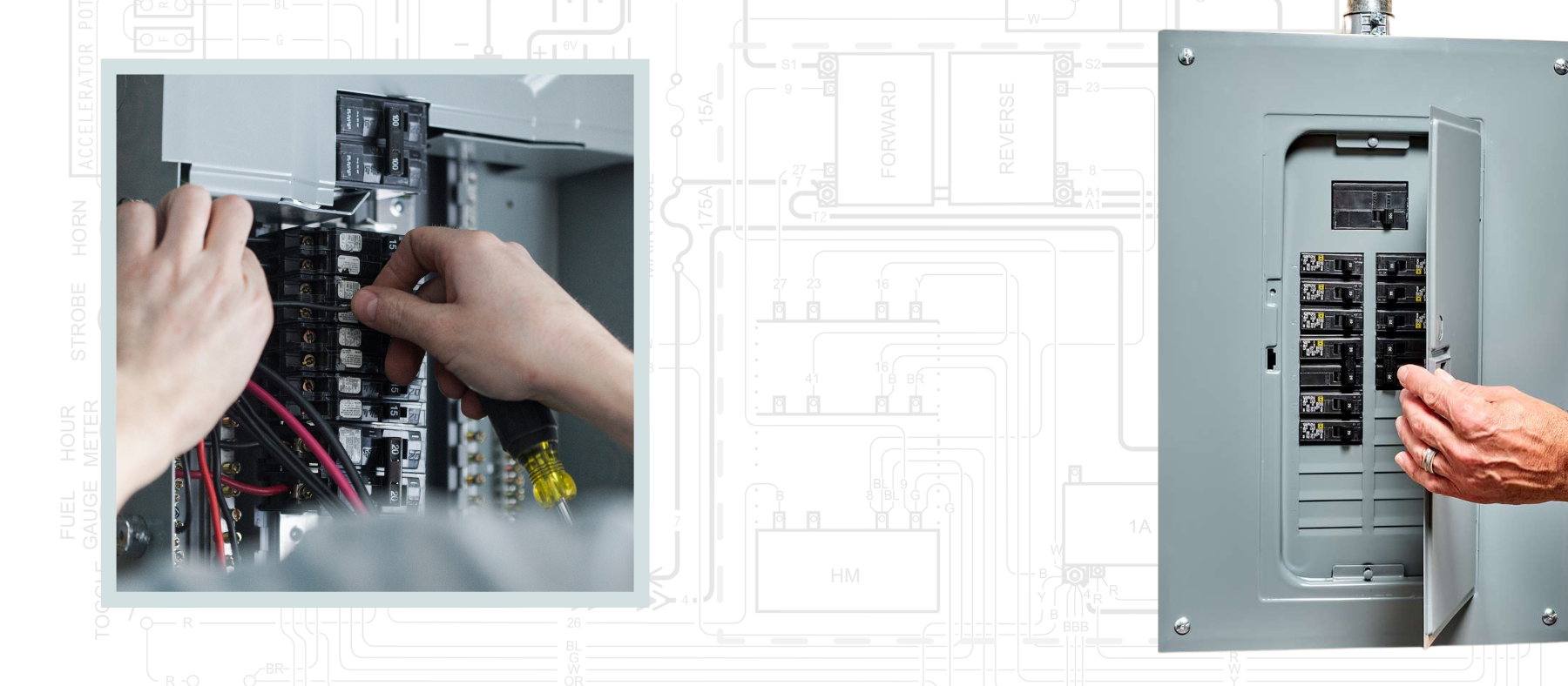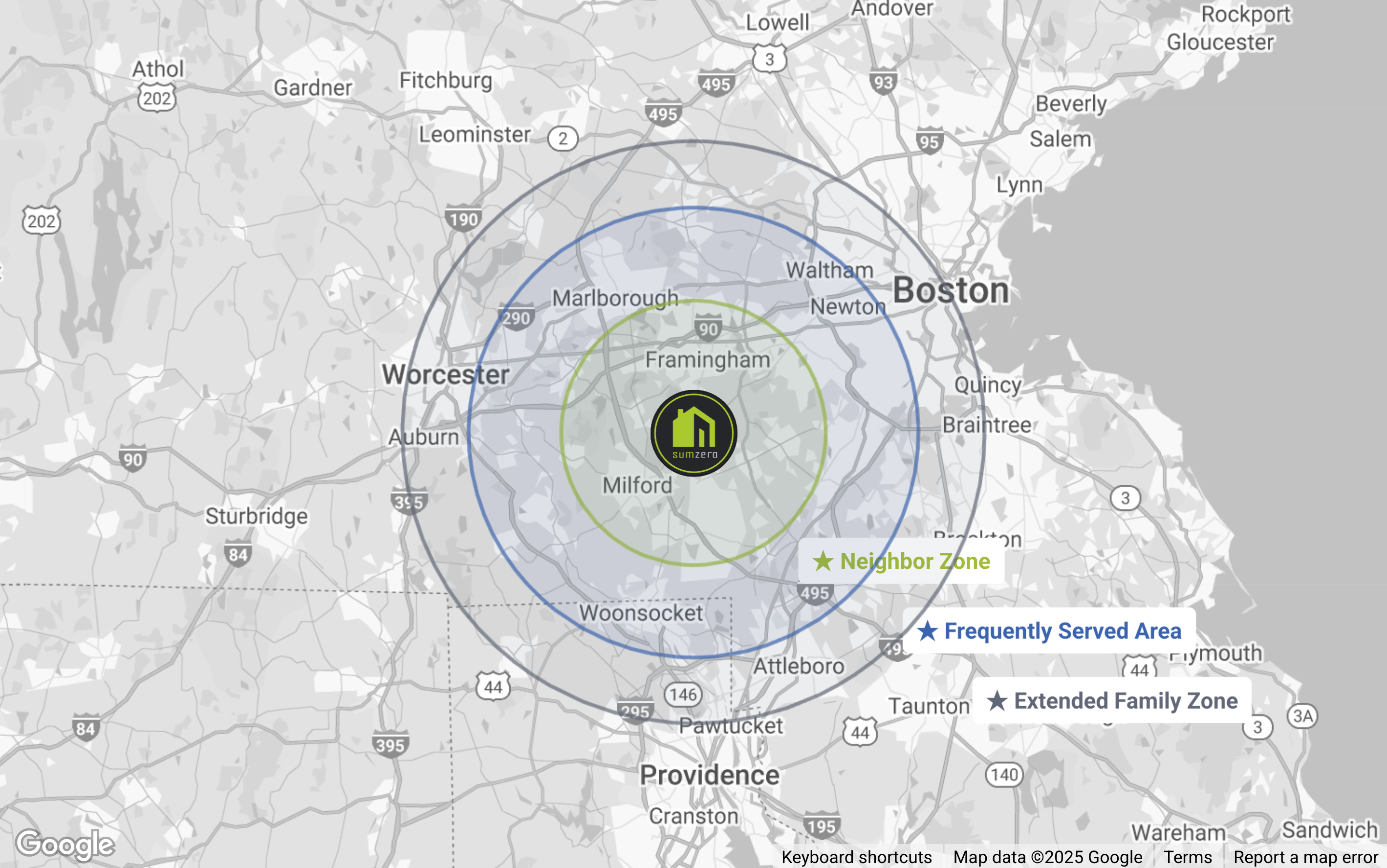Subpanel Installation | Boston, MA
Sub panel installation is the process of adding a secondary electrical panel to expand your home's power capacity safely and efficiently. In Boston, our expert team provides reliable electrical sub panel installation and upgrades to help ensure code compliance, improved performance, and clear guidance on the cost to install a sub panel based on your specific needs.

Why Sub Panel Installation Matters for Boston Homeowners
As a historic yet ever-modernizing city, Boston-MA presents unique challenges and opportunities for homeowners looking to enhance their electrical systems. With many homes still relying on outdated wiring or limited electrical capacity, the demand for more efficient power distribution has been steadily climbing. Whether you're renovating a brownstone in the South End, upgrading a colonial in Brookline, or building out your basement in Jamaica Plain, installing a sub panel can dramatically improve your home's electrical safety and flexibility.
Boston’s fluctuating seasons—from intense winter storms to muggy summer heat waves—mean more heating and cooling loads on electrical systems. Local homeowners are increasingly adding electric heat pumps, vehicle charging stations, and solar panel systems to their homes, and all of these require robust electrical infrastructure.
That’s where sub panel installation comes into play. This updated solution allows expansion while maintaining NEC (National Electrical Code) compliance and safety. For Massachusetts residents, especially those living in older homes, it's not a luxury—it’s often a necessity.
“In many Greater Boston homes, electrical systems built decades ago weren't designed to meet today’s energy demands. A properly installed sub panel bridges that gap, protecting your home and improving performance.”
The Value of Professional Sub Panel Installation in Boston-MA
What Is a Sub Panel and Why You Might Need One
A sub panel, also known as a circuit breaker sub panel, is a smaller service panel that distributes electricity to a specific area or set of circuits. Homeowners in Boston often need a sub panel when their main panel is full or if they're adding major appliances, finishing basements, or building additions.
Common use cases include:
- Supporting new home additions or in-law suites
- Creating dedicated circuits for home offices or workshops
- Upgrading older systems in pre-war homes
Professional sub panel installation ensures that all connections are safely and accurately routed, reducing the risk of overloads or fire hazards.
Advantages of a Dedicated Sub Panel in Massachusetts Homes
- Improved power distribution to specific areas
- Simplified wiring and troubleshooting
- Localized access to breakers (ideal for basements, garages, or workshops)
- Reduced overloads on the main breaker
- Enhanced support for solar systems and electric vehicle chargers
Electrical codes in Massachusetts, especially in Boston, require strict adherence to safety guidelines. Proper permitting and inspections are mandatory, and hiring a licensed electrician guarantees that these requirements are fully met.
The Importance of Local Compliance
Massachusetts homeowners must comply with evolving building and electrical codes. Boston has adopted the latest NEC updates that demand arc fault and ground fault protection. Improper installations can result in failed inspections or system failures, leading to costly repeat work.
“Boston building inspectors emphasize NEC-compliant sub panels, especially in fire-prone zones like attics, basements, and older renovations.”
Understanding Electrical Sub Panel Installation in Boston
Climate and Load Considerations
Boston's climate—featuring snowy winters and hot summers—places natural strain on electrical systems. Families often install heat pumps, boiler controls, sump pumps, and space heaters. Older properties, common in areas like Dorchester and Allston, may not have panels that support these modern loads.
Electrical sub panel installation lets homeowners dedicate circuits to these systems, avoiding dangerous overreliance on extension cords or outdated main panels.
Choosing the Right Sub Panel for Your Home
The choice depends on your specific needs:
- 60-amp panels: Ideal for detached garages or small additions
- 100-amp panels: Common for large additions or heavy appliance use
- 125-200 amp panels: Necessary if you're supporting EV chargers, heat pumps, or solar power
Working with licensed professionals ensures correct sizing, grounding, and capacity planning based on your home’s demand.
The Role of Permits and Inspections in Boston
In Boston, all electrical upgrades—including installing a sub panel—must follow strict permitting rules overseen by the Boston Inspectional Services Department. Homeowners must hire properly credentialed contractors who can:
- File permit applications
- Coordinate inspection timings
- Document compliance with Massachusetts and federal codes
Skipping this step not only violates local laws but puts your home and family at risk.
What Impacts the Cost to Install a Sub Panel in Boston-MA?
Basic Cost Factors
One of the most common questions we get from Boston-area homeowners is: how much does it cost to install a sub panel?
Several factors influence the answer:
- Type and size of the sub panel (amp rating)
- Distance from the main panel (longer cable runs cost more)
- Number of circuits needed
- Age of the home's electrical system
- Labor costs in Boston (typically higher due to licensing requirements and union standards)
On average, Boston homeowners can expect to pay between $1,200 to $3,000+ for professional electrical sub panel installation. However, this range can stretch depending on your existing system and goals.
Rebates and Incentives for Electrical Upgrades
Through programs like Mass Save, Boston homeowners may be eligible for rebates or 0% financing if their electrical improvements support energy efficiency projects. If you're installing heat pumps, solar panels, or EV chargers, a sub panel might be required—and part of a qualifying project.
Some eligible upgrades include:
- Installing a sub panel to support clean heating and cooling equipment
- Upgrading wiring to accommodate energy-efficient appliances
Long-Term Financial Benefits
A properly installed sub panel not only reduces the risk of electrical fires and system overloads but supports safer, more sustainable household power use. It can also:
- Reduce unnecessary trip calls to electricians by improving access to circuits
- Improve resale value (especially appealing to buyers interested in renewable energy setups)
- Simplify future upgrades
“When selling homes in neighborhoods like Charlestown or Brighton, electrical capacity is now a key value factor—especially for buyers planning solar or EV chargers.”
Sub Panel Upgrades: When and Why to Consider Them
Signs You Need a Sub Panel Upgrade
Match your home’s situation to these warning signs:
- Your breakers frequently trip
- Lights flicker when multiple appliances run
- You're installing HVAC equipment, an electric vehicle charger, or new kitchen wiring
- Your main breaker panel is full or outdated
Boston’s aging housing stock makes these issues especially common. If your home hasn't seen an electrical update in over 20 years, it's worth getting an evaluation.
Benefits of Upgrading vs. Repairing
With advances in smart electrical technologies, sub panel upgrades offer far more flexibility than patching old systems:
- Increased circuit capacity
- Arc fault and GFCI protection compliance
- Compatibility with future smart panels or solar inverters
- Streamlined emergency shut-off options
An upgrade also ensures your home meets Boston’s latest building code amendments and safety mandates.
Ensuring Peace of Mind with Professional Installation
Sub panel upgrades are not DIY-friendly. Mistakes can cause:
- Overloaded circuits
- Improper grounding
- Fire risks
- Code violations
Licensed electricians ensure all wiring, breakers, and materials meet both Boston and NEC standards. Most importantly, they know how to interpret Massachusetts utility regulations and file proper documentation.
Planning to Install a Sub Panel? Here’s What to Know
Preparation Checklist Before Installation
Before starting any sub panel installation, Boston homeowners should:
- Verify your main service panel has capacity
- Plan ahead for any future electrical loads
- Choose a sub panel with enough breaker slots
- Know local regulations and permit timeframes
- Budget for materials and professional labor
Discussing your project with a licensed electrician early helps you plan costs and avoid project delays.
Installation Timeline and Workflow
Sub panel projects typically span one day to several days, depending on complexity. General workflow includes:
- Site evaluation and system sizing
- Permit application with Boston inspection departments
- Cut power and begin wiring
- Mount and connect sub panel to main panel
- Test circuits and schedule inspection
With proper scheduling, the process is seamless and minimally disruptive to your daily routine.
Supporting Add-Ons for Electrical Modernization
Sub panels are often just the beginning. Homeowners investing in install a sub panel projects frequently also consider:
- Surge protection additions
- Whole-home battery backup support
- Smart home panel integrations
- Preparations for solar convergence
Boston’s push toward electrification means these forward-looking additions make your home safer and more energy-efficient.
---
Smart electrical planning allows Boston homeowners to meet modern demands without compromising safety or compliance. Whether you're finishing a basement in Roslindale or electrifying your driveway in West Roxbury, knowledgeable sub panel upgrades keep your power reliable—year-round.
What Local Homeowners Are Saying
See how SumZero has helped local homeowners stay comfortable year-round with energy-efficient heat pump solutions.
Not Sure Where to Start? We’ll Guide You
Let our experts design the right heating and cooling solution—customized for your comfort, your layout, and your energy goals. No pressure. Just clarity.
Request FREE ESTIMATE








